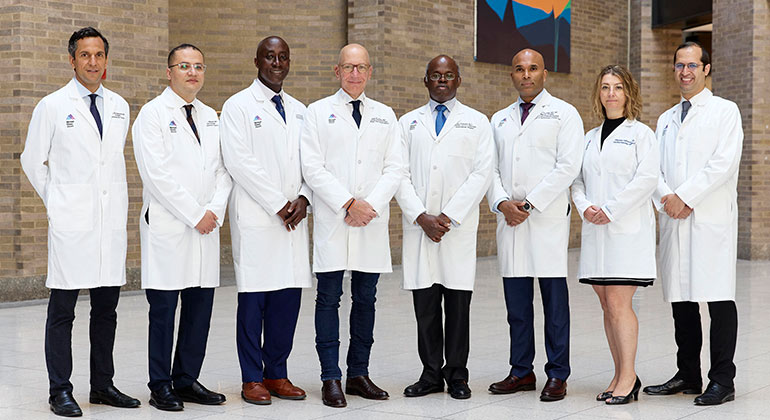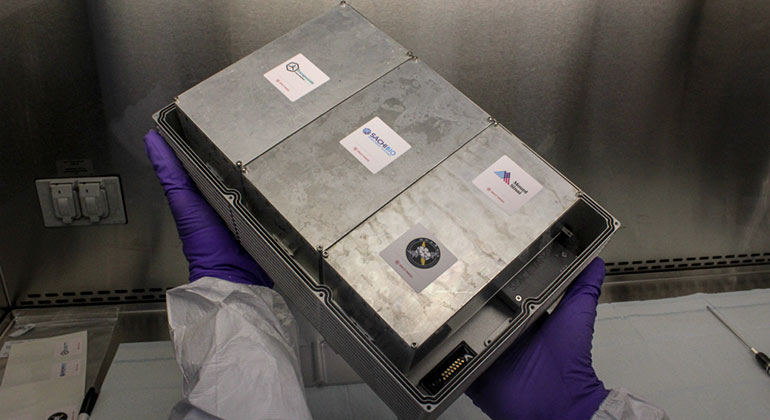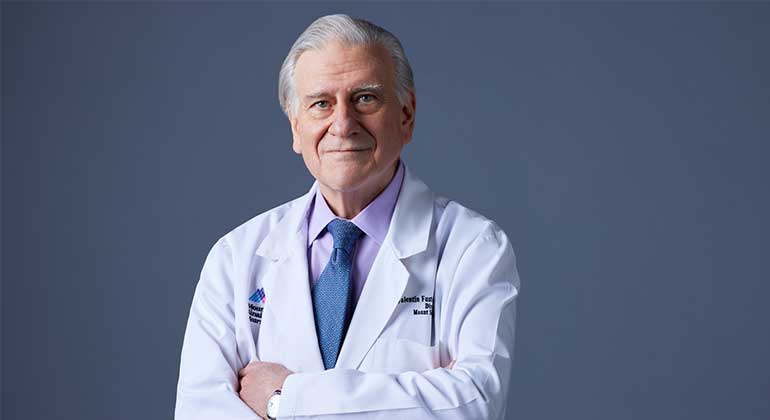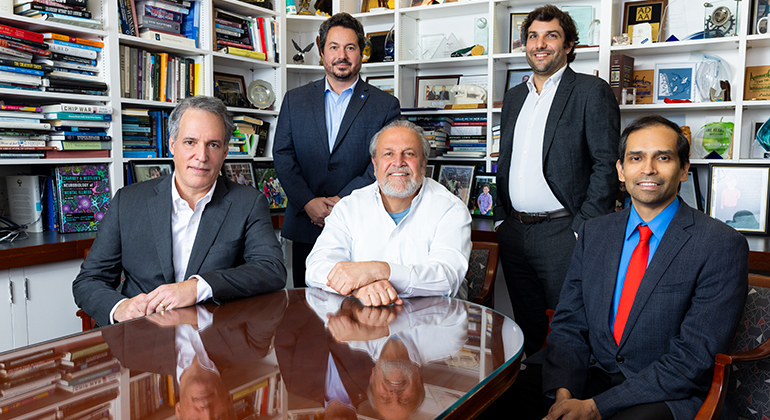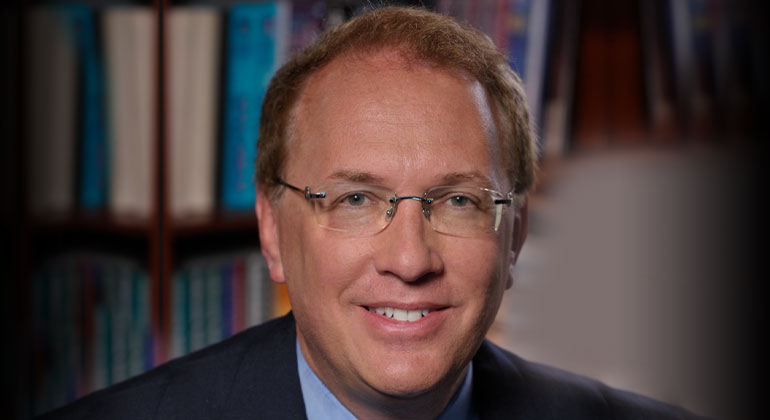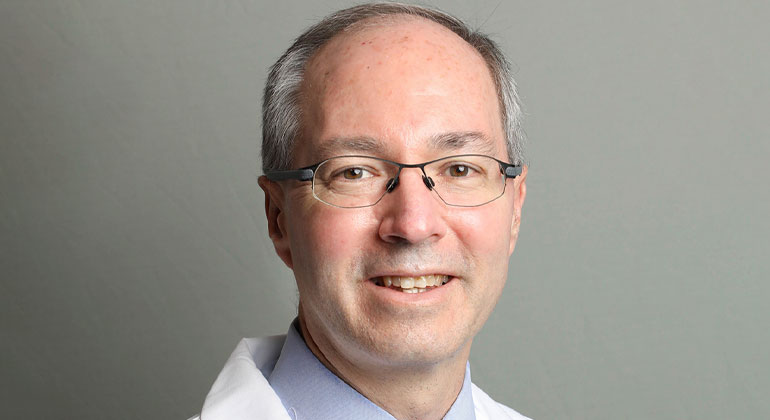World Heart Day is Sunday, September 29
Mount Sinai Heart calls for heart healthy action by both adults and children.
World Heart Day, sponsored annually by the World Heart Federation, is celebrated on the last Sunday of September. This year to mark World Heart Day on September 29, Mount Sinai Heart at The Mount Sinai Medical Center is calling for more heart healthy action by adults and children around the globe. Their goal is to prevent heart disease and more unnecessary deaths from cardiovascular diseases.
"Adults, parents, and children need to take daily action to strike out heart disease and improve their entire family's overall heart health," says Valentin Fuster, MD, PhD, past President of the World Heart Federation who is Director of Mount Sinai Heart and Physician-in-Chief at The Mount Sinai Medical Center. "Healthy adults tend to have healthier families, and healthy children often grow-up to be healthier adults too."
Dr. Fuster urges adults, parents, and children to remember to do three things daily to prevent and curb the burden of cardiovascular diseases. This includes:
Exercise Daily
Adults and children need to stay active. Daily physical activity and aerobic exercise needs to part of each day. This may include exercising at the gym, walking, bicycling, or swimming. It is vital for parents to start encouraging their child's exercise early in life at age 3-5 years old and also play with their child to encourage physical activity.
Eat Healthy
Making healthy nutritional choices daily is vital for children and adults. A diet rich in colorful fruits and vegetables, and water, should be part of a daily heart healthy diet. Everyone should avoid food with excessive fat, sugar, and salt. Also, remember to limit soft drinks and fast food consumption.
Avoid Tobacco Smoke
Smoking tobacco can cause heart disease because cigarette smoke narrows and damages the arteries of the body. It is important that adults do not smoke or stop smoking. Also, children need to be educated about the dangers of tobacco smoke. In addition, it is vital for everyone to reduce their exposure to second-hand smoke. Researchers at Mount Sinai Heart recently showed increased exposure to second-hand tobacco smoke in people who never smoked is associated with coronary artery calcification. This build-up of calcium in the heart's arteries indicates heart disease.
About The Mount Sinai Medical Center
The Mount Sinai Medical Center encompasses both The Mount Sinai Hospital and Icahn School of Medicine at Mount Sinai. Established in 1968, the Icahn School of Medicine is one of the leading medical schools in the United States, with more than 3,400 faculty in 32 departments and 14 research institutes. It ranks among the top 20 medical schools both in National Institutes of Health (NIH) funding and by U.S. News & World Report. The Mount Sinai Hospital, founded in 1852, is a 1,171-bed tertiary- and quaternary-care teaching facility and one of the nation's oldest, largest and most-respected voluntary hospitals. The Mount Sinai Hospital is nationally ranked by U.S. News & World Report as one of the top 25 hospitals in 7 specialties based on reputation, safety, and other patient-care factors.
For more information, visit http://www.mountsinai.org/.
Find Mount Sinai on:
Facebook: http://www.facebook.com/mountsinainyc
Twitter @mountsinainyc
About the Mount Sinai Health System
Mount Sinai Health System is one of the largest academic medical systems in the New York metro area, with more than 43,000 employees working across eight hospitals, over 400 outpatient practices, nearly 300 labs, a school of nursing, and a leading school of medicine and graduate education. Mount Sinai advances health for all people, everywhere, by taking on the most complex health care challenges of our time — discovering and applying new scientific learning and knowledge; developing safer, more effective treatments; educating the next generation of medical leaders and innovators; and supporting local communities by delivering high-quality care to all who need it.
Through the integration of its hospitals, labs, and schools, Mount Sinai offers comprehensive health care solutions from birth through geriatrics, leveraging innovative approaches such as artificial intelligence and informatics while keeping patients’ medical and emotional needs at the center of all treatment. The Health System includes approximately 7,300 primary and specialty care physicians; 13 joint-venture outpatient surgery centers throughout the five boroughs of New York City, Westchester, Long Island, and Florida; and more than 30 affiliated community health centers. We are consistently ranked by U.S. News & World Report's Best Hospitals, receiving high "Honor Roll" status, and are highly ranked: No. 1 in Geriatrics and top 20 in Cardiology/Heart Surgery, Diabetes/Endocrinology, Gastroenterology/GI Surgery, Neurology/Neurosurgery, Orthopedics, Pulmonology/Lung Surgery, Rehabilitation, and Urology. New York Eye and Ear Infirmary of Mount Sinai is ranked No. 12 in Ophthalmology. U.S. News & World Report’s “Best Children’s Hospitals” ranks Mount Sinai Kravis Children's Hospital among the country’s best in several pediatric specialties.
For more information, visit https://www.mountsinai.org or find Mount Sinai on Facebook, Twitter and YouTube.
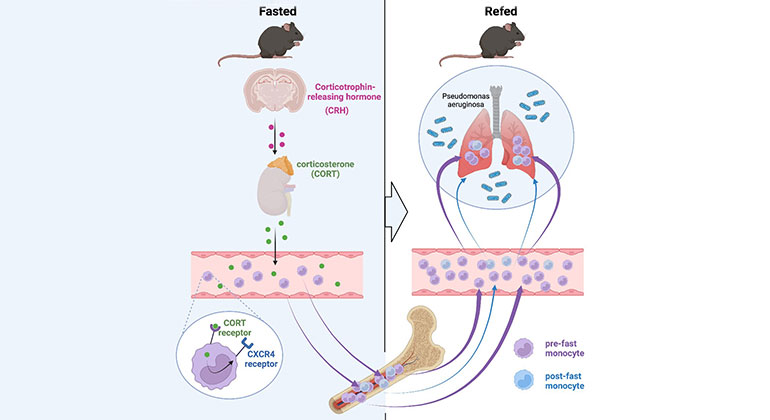
Skipping Breakfast May Compromise the Immune System
Feb 23, 2023 View All Press Releases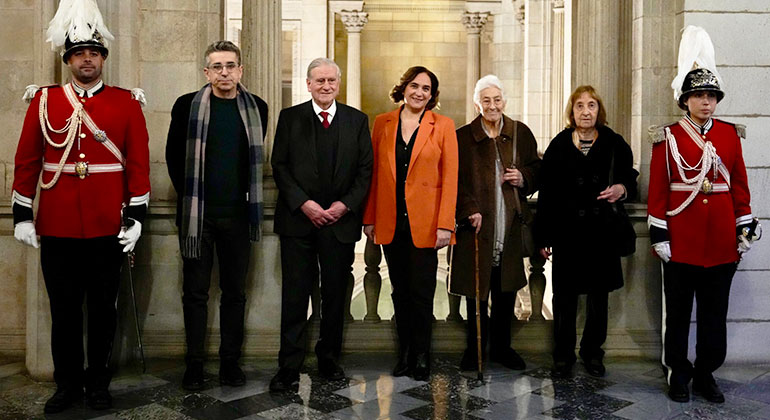
Valentin Fuster, MD, PhD, Receives Prestigious Award from City of Barcelona, Spain
Jan 23, 2023 View All Press Releases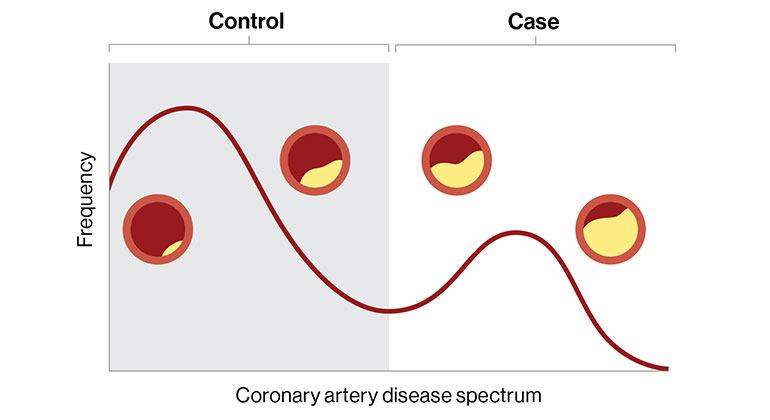
Digital Marker for Coronary Artery Disease Built by Researchers at Mount Sinai
Dec 20, 2022 View All Press Releases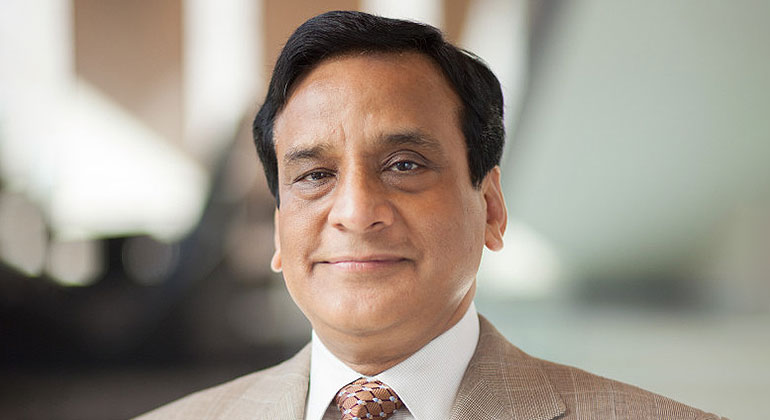
Samin Sharma, MD, Named Director of the Mount Sinai Cardiovascular Clinical Institute
Nov 28, 2022 View All Press Releases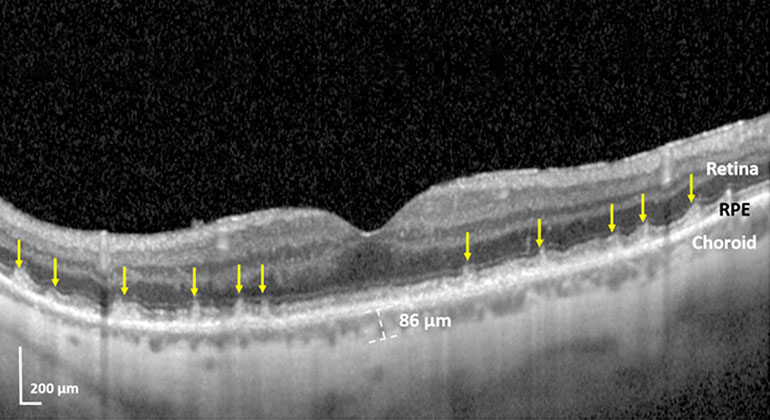
Blinding Eye Disease Strongly Associated With Serious Forms of Cardiovascular Disease
Nov 17, 2022 View All Press Releases